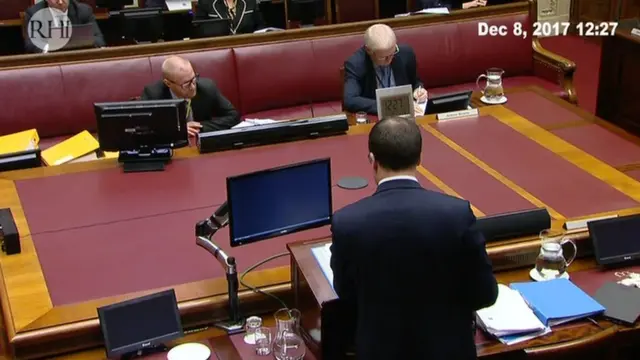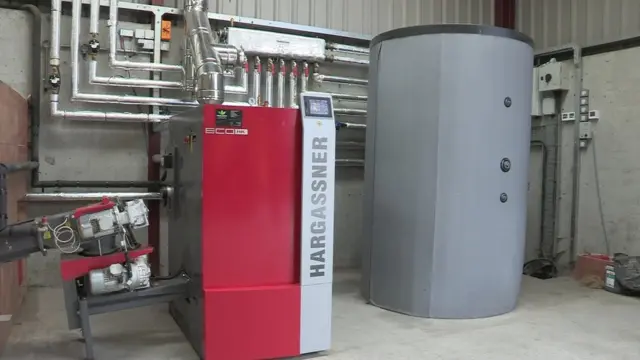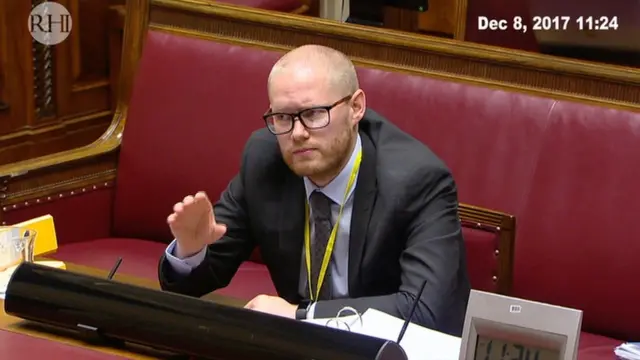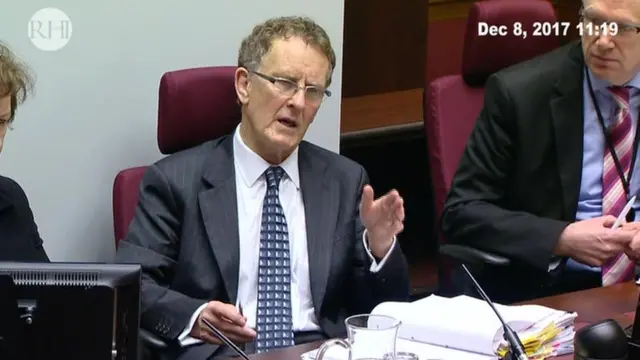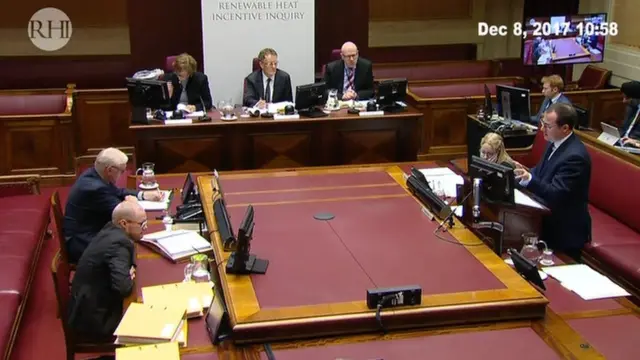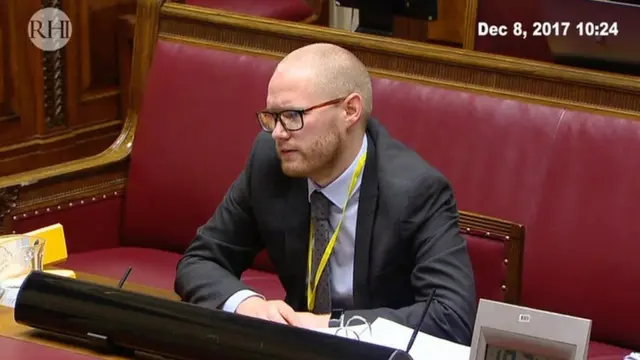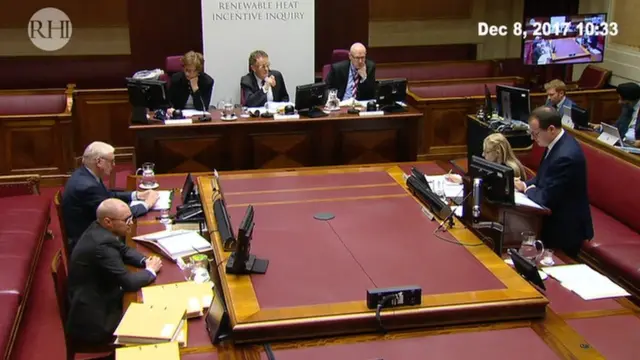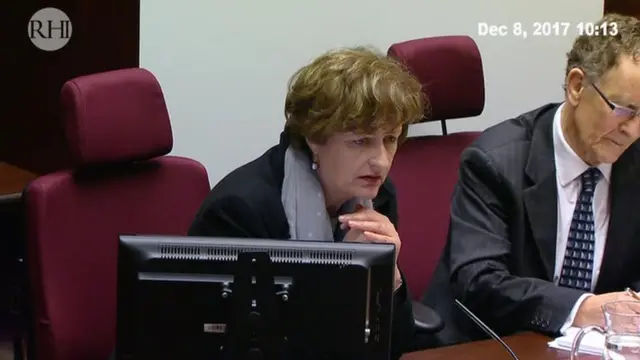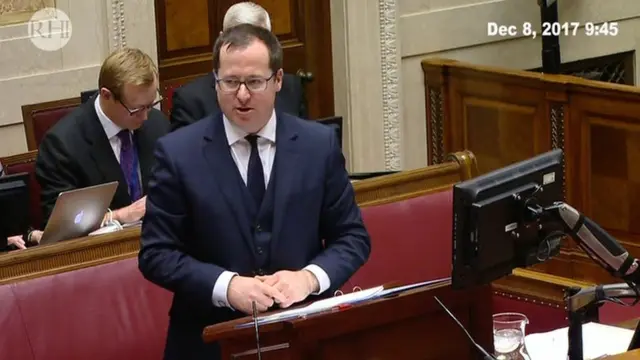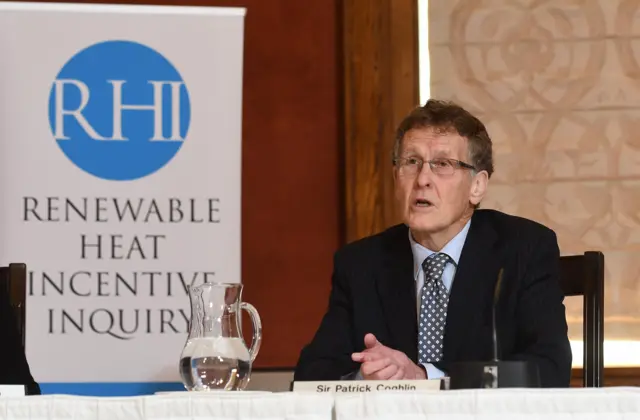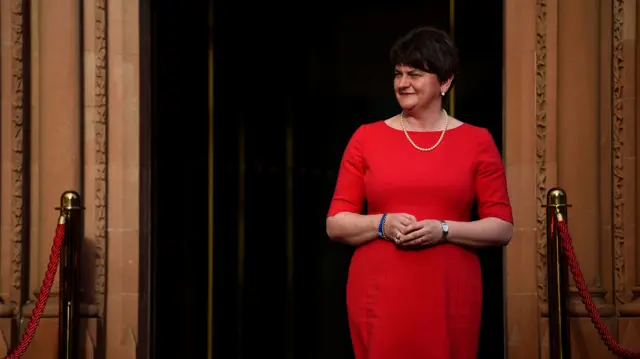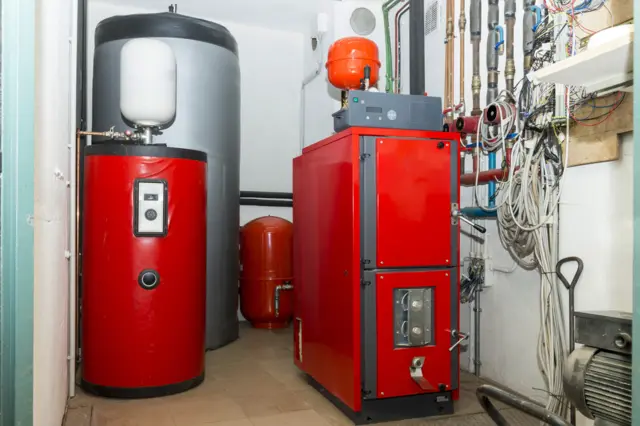That's all for this week...published at 13:50 GMT 8 December 2017
It's a familiar theme - the inquiry is running behind schedule again, and yes, Mr Hutchinson will have to return for a third Q&A session.
"I suspect Mr Hutchinson has something rather more attractive to do on a Friday morning than attend before the inquiry," says Sir Patrick.
Allow X content?
This article contains content provided by X. We ask for your permission before anything is loaded, as they may be using cookies and other technologies. You may want to read X’s cookie policy, external and privacy policy, external before accepting. To view this content choose ‘accept and continue’.
There's no sitting scheduled for next week, but an extra session has been pencilled in for 18 December.
We're going to get our skis on soon and head for home down the snowy slopes of Stormont!

